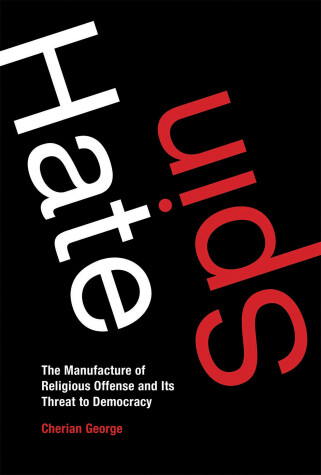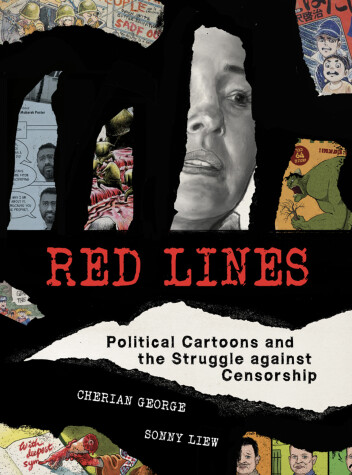Information Policy
2 total works
How right-wing political entrepreneurs around the world use religious offense-both given and taken-to mobilize supporters and marginalize opponents.
In the United States, elements of the religious right fuel fears of an existential Islamic threat, spreading anti-Muslim rhetoric into mainstream politics. In Indonesia, Muslim absolutists urge suppression of churches and minority sects, fostering a climate of rising intolerance. In India, Narendra Modi's radical supporters instigate communal riots and academic censorship in pursuit of their Hindu nationalist vision. Outbreaks of religious intolerance are usually assumed to be visceral and spontaneous. But in Hate Spin, Cherian George shows that they often involve sophisticated campaigns manufactured by political opportunists to mobilize supporters and marginalize opponents. Right-wing networks orchestrate the giving of offense and the taking of offense as instruments of identity politics, exploiting democratic space to promote agendas that undermine democratic values.
George calls this strategy "hate spin"-a double-sided technique that combines hate speech (incitement through vilification) with manufactured offense-taking (the performing of righteous indignation). It is deployed in societies as diverse as Buddhist Myanmar and Orthodox Christian Russia. George looks at the world's three largest democracies, where intolerant groups within India's Hindu right, America's Christian right, and Indonesia's Muslim right are all accomplished users of hate spin. He also shows how the Internet and Google have opened up new opportunities for cross-border hate spin.
George argues that governments must protect vulnerable communities by prohibiting calls to action that lead directly to discrimination and violence. But laws that try to protect believers' feelings against all provocative expression invariably backfire. They arm hate spin agents' offense-taking campaigns with legal ammunition. Anti-discrimination laws and a commitment to religious equality will protect communities more meaningfully than misguided attempts to insulate them from insult.
Why do the powerful feel so threatened by political cartoons? Cartoons don't tell secrets or move markets. Yet, as Cherian George and Sonny Liew show us in Red Lines, cartoonists have been harassed, trolled, sued, fired, jailed, attacked, and assassinated for their insolence. The robustness of political cartooning--one of the most elemental forms of political speech--says something about the health of democracy. In a lively graphic narrative--illustrated by Liew, himself a prize-winning cartoonist--Red Lines crisscrosses the globe to feel the pulse of a vocation under attack.
A Syrian cartoonist insults the president and has his hands broken by goons. An Indian cartoonist stands up to misogyny and receives rape threats. An Israeli artist finds his antiracist works censored by social media algorithms. And the New York Times, caught in the crossfire of the culture wars, decides to stop publishing editorial cartoons completely. Red Lines studies thin-skinned tyrants, the invisible hand of market censorship, and demands in the name of social justice to rein in the right to offend. It includes interviews with more than sixty cartoonists and insights from art historians, legal scholars, and political scientists--all presented in graphic form. This engaging account makes it clear that cartoon censorship doesn't just matter to cartoonists and their fans. When the red lines are misapplied, all citizens are potential victims.

